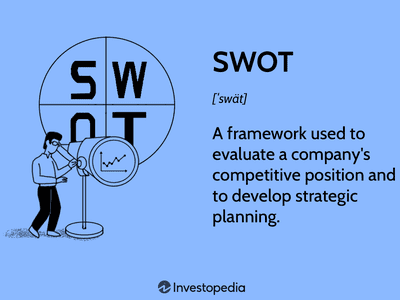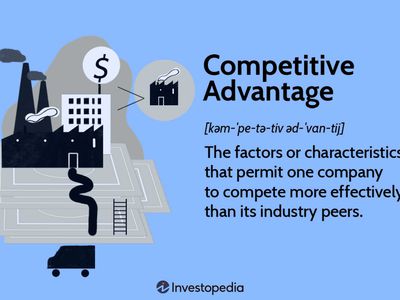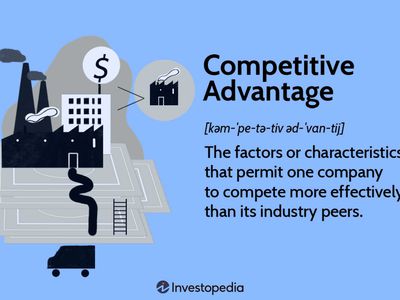Competitive intelligence, also known as corporate intelligence, plays a crucial role in business success by providing valuable insights into competitors, customers, and other market factors. This article explores the definition, types, and uses of competitive intelligence, emphasizing its importance in helping businesses understand their competitive environment and make informed decisions. It highlights that competitive intelligence goes beyond simple online searches and involves gathering data from various sources, such as industry experts, interviews, trade shows, and government records. By effectively utilizing competitive intelligence, businesses can anticipate challenges, identify opportunities, and enhance their organizational performance.
Table of Contents
ToggleCompetitive Intelligence: Definition, Types, and Uses
Competitive Intelligence (CI) is a critical aspect of business strategy that involves gathering, analyzing, and using information about competitors, customers, and other market factors to gain a competitive advantage. In this article, we will explore what competitive intelligence is, how it works, the different types of competitive intelligence, and special considerations to keep in mind when implementing CI in your business practices.

This image is property of www.investopedia.com.
What Is Competitive Intelligence?
Competitive intelligence, often referred to as corporate intelligence, is the process of collecting and analyzing information about competitors, customers, and other market factors in order to gain insights and make informed decisions. It involves monitoring and evaluating the competitive landscape to identify potential threats and opportunities that can impact a business’s success.
Competitive intelligence is crucial for businesses because it helps them understand their competitive environment and develop effective strategies to stay ahead in the market. By gathering and analyzing relevant information, businesses can identify market trends, customer preferences, and competitor strategies, which can in turn inform their decision-making and lead to a competitive advantage.
How Competitive Intelligence Works
The process of competitive intelligence involves collecting, analyzing, and using information from various sources to gain insights and inform decision-making. Here are the key steps involved:
-
Definition: Competitive intelligence involves defining the goals and objectives of the intelligence gathering process. This includes identifying the specific information needs, the scope of the analysis, and the desired outcomes.
-
Sources of Information: The next step is to identify and collect relevant information from various sources. These sources can include both internal and external data, such as market research reports, competitor websites, customer feedback, industry publications, and social media.
-
Analysis and Decision Making: Once the information is collected, it needs to be analyzed and interpreted to derive meaningful insights. This can involve data analysis techniques, market research methodologies, and competitive benchmarking. The insights gained from analysis are then used to inform decision-making processes, such as strategy formulation, product development, pricing, and marketing.
-
Role in Business Practices: Competitive intelligence plays a crucial role in shaping business practices, including marketing strategies, product development, pricing, and sales efforts. By understanding the competitive landscape, businesses can tailor their offerings to meet customer needs, differentiate themselves from competitors, and seize market opportunities.

This image is property of www.investopedia.com.
Types of Competitive Intelligence
Competitive intelligence can be classified into two main types: tactical intelligence and strategic intelligence.
-
Tactical Intelligence: Tactical intelligence focuses on short-term goals and provides insights into specific operational activities. It aims to capture market share, increase revenues, and improve operational efficiency. Tactical intelligence is useful for sales teams, marketing departments, and other operational teams who require immediate and actionable insights to drive performance.
-
Strategic Intelligence: Strategic intelligence takes a long-term view and focuses on broader strategic goals. It aims to identify key risks and opportunities facing the business and guide long-term decision-making. Strategic intelligence is crucial for top-level executives and senior management who are responsible for setting the overall direction and strategy of the organization.
It’s important to note that competitive intelligence should never involve corporate espionage or unethical practices. Competitive intelligence professionals adhere to strict ethical standards and rely on publicly available information and legitimate research techniques to gather insights.

This image is property of www.investopedia.com.
Special Considerations
Implementing competitive intelligence effectively requires special considerations and awareness of potential challenges. Here are a few key aspects to keep in mind:
-
Challenges of Online Information: While the internet provides a wealth of information, it is important to recognize the limitations and challenges of relying solely on online sources. Not all information available online is accurate or reliable, and it may be necessary to verify and cross-reference information from multiple sources.
-
Collecting Information from Various Sources: Competitive intelligence involves gathering information from a wide range of sources, including internal data, external research reports, public filings, trade shows, and interviews with stakeholders. Effective information collection requires a systematic approach and the ability to access diverse sources of information.
-
Investigating Stakeholders, Distributors, and Suppliers: To gain a comprehensive understanding of the competitive landscape, it is important to investigate not only competitors but also key stakeholders, distributors, and suppliers. This can provide insights into the broader ecosystem in which the business operates.
-
The Role of Competitive Intelligence Professionals: Competitive intelligence is a specialized field that requires specific skills and expertise. Hiring or developing skilled professionals who can effectively gather and analyze competitive intelligence is key to ensuring its successful implementation within an organization.
In conclusion, competitive intelligence is a valuable tool for businesses to gain a competitive advantage. By gathering and analyzing information about competitors, customers, and market factors, businesses can make informed decisions, develop effective strategies, and stay ahead in the ever-changing business landscape. By understanding the definition, types, and uses of competitive intelligence, businesses can harness its power and drive their success in the marketplace.

This image is property of www.investopedia.com.
Source: https://www.investopedia.com/terms/c/competitive-intelligence.asp





